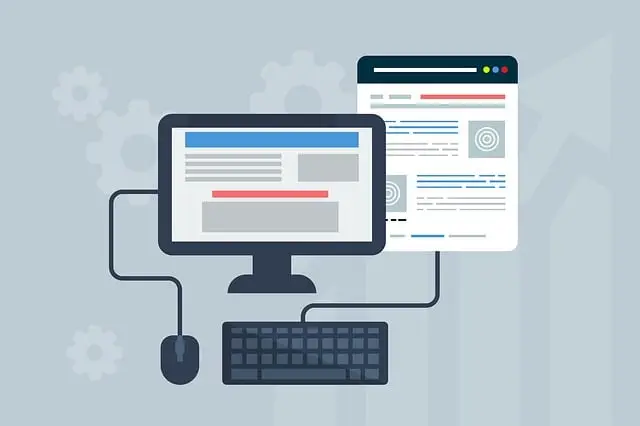In the digital age, ensuring your WordPress website design in Hamilton NJ is accessible to all users is not just ethical, but essential. This comprehensive guide delves into the significance of WordPress accessibility, exploring legal requirements and industry standards. We offer best practices for designers and developers, highlighting how to implement accessibility features within themes and plugins. Additionally, we provide strategies for thorough testing to guarantee your Hamilton NJ WordPress site meets accessibility goals, fostering an inclusive online experience.
- Understanding WordPress Accessibility: Why It Matters for Your Website
- Legal Requirements and Standards for Accessible WordPress Websites
- Designing for All Users: Best Practices in WordPress Development
- Implementing Accessibility Features in WordPress Themes and Plugins
- Testing and Ensuring Your Hamilton NJ WordPress Site Meets Accessibility Goals
Understanding WordPress Accessibility: Why It Matters for Your Website

In today’s digital landscape, ensuring your WordPress website design is accessible to all users is not just a moral imperative but also a strategic necessity for any business or organization in Hamilton, NJ. Accessibility means creating digital content and interfaces that can be used by people with disabilities, including visual, auditory, motor, and cognitive impairments. By making your WordPress site accessible, you open it up to a broader audience, enhancing user experience and satisfaction.
For a WordPress Website Design Hamilton NJ, prioritizing accessibility is crucial for several reasons. Firstly, it aligns with legal requirements such as the Americans with Disabilities Act (ADA), which mandates that public accommodations provide goods and services that are accessible to everyone. Secondly, it improves your site’s search engine optimization (SEO) by making your content more discoverable to a diverse range of users. Lastly, it demonstrates your commitment to inclusivity and social responsibility, fostering goodwill among visitors and potential customers alike.
Legal Requirements and Standards for Accessible WordPress Websites

In the United States, creating accessible WordPress websites is not just a best practice—it’s a legal necessity. The Americans with Disabilities Act (ADA) and Section 508 of the Rehabilitation Act enforce accessibility standards for public-facing websites, including those built on WordPress. These laws ensure that individuals with disabilities have equal access to digital content, tools, and services. For businesses in Hamilton, NJ, and beyond, adhering to these standards is crucial to avoid legal repercussions and expand their reach to a diverse user base.
WordPress itself has made significant strides in accessibility features, but website owners must also ensure their themes, plugins, and content meet the required standards. This includes proper use of headings, alt text for images, keyboard navigation, color contrast ratios, and captions for videos. By following these guidelines, Hamilton-based WordPress website designers can create inclusive online environments that cater to users with visual, auditory, motor, or cognitive disabilities, enhancing user experience and promoting digital equity.
Designing for All Users: Best Practices in WordPress Development

In the realm of WordPress development, designing for all users is paramount. A well-crafted WordPress website in Hamilton, NJ, should cater to a diverse range of visitors, including those with disabilities. Following best practices ensures inclusivity and enhances user experience for everyone. One key aspect is implementing proper color contrast to accommodate visually impaired users, adhering to Web Content Accessibility Guidelines (WCAG). Additionally, providing alternative text for images and ensuring keyboard navigability allows users who rely on screen readers to interact seamlessly.
Other crucial practices include using clear and consistent language, structuring content with headings, and offering multiple ways to navigate the site. These strategies not only benefit users with disabilities but also improve SEO rankings and make your WordPress website more user-friendly overall. By prioritizing accessibility from the outset, developers in Hamilton, NJ, can create vibrant online spaces accessible to folks from all walks of life.
Implementing Accessibility Features in WordPress Themes and Plugins

In the realm of WordPress website design in Hamilton, NJ, ensuring accessibility is a game-changer. Theme developers and plugin creators play a pivotal role by implementing features that cater to users with diverse needs. One effective strategy involves integrating simple yet powerful tools like alt text for images, keyboard navigation support, and proper heading structures. These basic accessibility measures significantly enhance the user experience for individuals relying on assistive technologies.
Moreover, WordPress themes and plugins can offer dynamic solutions. For instance, creating forms with clear labels and error messages improves accessibility for users with cognitive disabilities. Plugins dedicated to accessibility further expand these capabilities, providing customizable options to meet specific requirements. By embracing these practices, Hamilton-based WordPress designers not only comply with web standards but also foster an inclusive digital environment.
Testing and Ensuring Your Hamilton NJ WordPress Site Meets Accessibility Goals

When creating or updating a WordPress website for your business in Hamilton, NJ, ensuring it meets accessibility goals is non-negotiable. Accessibility isn’t just about compliance; it’s about making your site accessible to everyone, including those with disabilities. Testing your site against industry standards like WCAG (Web Content Accessibility Guidelines) will help ensure it functions well for users who rely on screen readers, keyboard navigation, or other assistive technologies.
There are several tools available for testing WordPress website design Hamilton NJ sites. These include browser extensions, automated testing software, and manual checks. Regularly evaluating your site’s performance against these standards not only improves user experience but also boosts your SEO, as search engines favor accessible websites. Remember that a truly inclusive online presence requires continuous effort to identify and address any accessibility issues.



